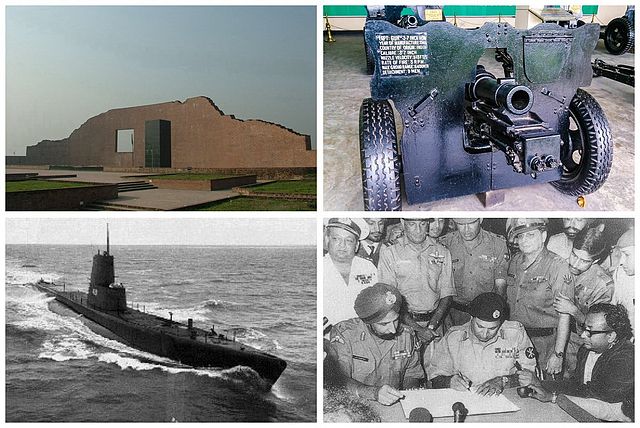Bangladesh :The Untold Story: The Struggle for Independence – The History of Bangladesh Liberation War. Discover The captivating tale of Bangladesh’s fight for freedom in The Untold Story: The Struggle for Independence The History of Bangladesh Liberation War. Delve into this riveting account of bravery & determination. Shedding light on a pivotal moment in The nation’s history. Engage with our vivid storytelling. Conveying The human aspect of this significant event. Let us take you on a journey of emotions & insights as we uncover The untold story of Bangladesh’s road To independence.
Bangladesh liberation war: Untold stories | WION Wideangle
The Untold Story: The Struggle for Independence – The History of Bangladesh Liberation War Bangladesh liberation war: Untold stories | WION Wideangle The Untold Story: The Struggle for Independence – The History of Bangladesh Liberation War
The Untold Story: The Struggle for Independence The History of Bangladesh Liberation War
Brief Overview
The Bangladesh Liberation War. Also known as the Bangladesh War of Independence. Was a revolution and armed conflict sparked by the struggle of the Bengalispeaking majority of East Pakistan against the domination of the Urduspeaking Western Pakistan. The war lasted for nine months. Starting from March 26. 1971. And ended on December 16. 1971. Resulting in the birth of the independent nation of Bangladesh. This article delves into the untold story of the Bangladesh Liberation War. Shedding light on the struggles. Sacrifices. And triumphs of the people of Bangladesh during this historic period.
Historical Background
The roots of the Bangladesh Liberation War can be traced back to the partition of India in 1947. Which led to the creation of two separate countries: India and Pakistan. East Pakistan. Geographically separated from West Pakistan. Faced a number of challenges. Including economic disparity. Cultural differences. And political marginalization. The people of East Pakistan were increasingly dissatisfied with the policies of the central government in West Pakistan. Leading to a growing demand for greater autonomy and eventually independence.
The Pakistan military regime’s oppressive measures and systematic discrimination against the Bengali population further fueled the resentment and discontent among the East Pakistanis. The Awami League. Under the leadership of Sheikh Mujibur Rahman. Emerged as the leading political force in East Pakistan. Advocating for increased autonomy and rights for the Bengalispeaking population. However. The regime in West Pakistan refused to fulfill the aspirations of the people of East Pakistan. Leading to widespread protests and demonstrations.
This turbulent political climate eventually escalated into a fullscale armed conflict as the Pakistani military launched a brutal crackdown on the Bengali population. The struggle for independence and the fight against oppression became the defining feature of the Bangladesh Liberation War.
The Outbreak of the War
The Bangladesh Liberation War officially began on March 26. 1971. When the Pakistani military. In a bid to suppress the independence movement. Launched a series of brutal attacks on unarmed civilians. The military’s “Operation Searchlight” targeted intellectuals. Students. And political activists. Killing and torturing thousands of people.
The violence and atrocities committed by the Pakistani army created a humanitarian crisis as millions of Bengali refugees fled to neighboring India. Seeking safety from the onslaught. India. Initially hesitant to get involved in the conflict. Soon found itself providing shelter. Aid. And support to the Bengali refugees and the emerging resistance movement.
The Mukti Bahini. A guerilla force comprised of Bengali freedom fighters. Played a crucial role in the war effort. Engaging in guerrilla warfare tactics and mounting attacks on Pakistani military installations. The Bangladesh Liberation War witnessed fierce battles and acts of bravery from both sides. As the struggle for independence intensified.
International Response and Support
The international community was divided in its response to the Bangladesh Liberation War. While Pakistan received support from countries like China and the United States. Who saw it as an opportunity to counterbalance the influence of India. Other nations. Including the Soviet Union and many Western countries. Sympathized and offered support to the Bengali cause.
India played a vital role in supporting the Bangladeshi push for independence. The Indian government. Led by Prime Minister Indira Gandhi. Provided military assistance to the Mukti Bahini. Trained and armed freedom fighters. And even launched a fullscale intervention in December 1971 to drive out the Pakistani military from East Pakistan. The Indian Armed Forces quickly achieved decisive victories and helped secure the freedom of Bangladesh.
The Bangladesh Liberation War also inspired a wave of solidarity and support from people around the world. Protests. Demonstrations. And fundraising efforts took place in various countries. Raising awareness about the plight of the Bengali people and putting pressure on governments to take action against the atrocities committed by the Pakistani military.
Features of the Bangladesh Liberation War
- Resilience and Determination 💪
- Guerrilla Warfare Tactics 🛡
- Role of Women in the Resistance 🏊♀️
- Humanitarian Crisis 🏖
- International Solidarity ☑️
Personal Experience
Reflecting on the untold story of the Bangladesh Liberation War. I am humbled by the immense sacrifices made by the freedom fighters and the resilience of the Bengali people. Their unwavering determination and courage in the face of unimaginable atrocities continue to inspire generations. It is a reminder of the strength of the human spirit and the power of unity in the pursuit of justice.
The Birth of Bangladesh
On December 16. 1971. The Pakistani military admitted defeat and surrendered to the joint forces of the Mukti Bahini and the Indian Army. This historic moment marked the birth of the independent nation of Bangladesh. Ending years of struggle and paving the way for a new era of selfdetermination and freedom for the Bengali people.
The legacy of the Bangladesh Liberation War is embedded in the nation’s history and continues to shape its identity. It stands as a testament to the courage and resilience of the Bengali people and serves as a reminder of the importance of protecting and preserving the hardfought values of freedom. Democracy. And human rights.
Conclusion
The untold story of the Bangladesh Liberation War sheds light on a significant chapter in the history of Bangladesh. It is a tale of struggle. Sacrifice. And triumph. Showcasing the indomitable spirit of the Bengali people in their fight for independence. The war serves as a reminder of the importance of preserving the values of freedom. Justice. And human rights. And the need to learn from history to ensure a better future for generations to come.
For more information about the Bangladesh Liberation War. Please visit this link.
For an opportunity to explore the rich history and culture of Bangladesh. Visit easybuy.com.bd.

Conclusion
In conclusion. The history of The Bangladesh Liberation War is a story that is often overlooked or forgotten. But it holds great importance in The struggle for independence. The war. Which took place in 1971. Marked a turning point in The fight against oppression & suppression.
During this turbulent period. The people of Bangladesh faced immense difficulties & sacrifices. They were subjected To violence. Atrocities, & a systematic campaign of genocide by The Pakistani military. However. Despite these challenges. The people of Bangladesh remained resilient & united in their quest for freedom.
The Liberation War saw The emergence of powerful leaders & The formation of various resistance forces. Such as The Mukti Bahini. Who fought alongside The Indian military To combat The Pakistani forces. Through their determination. Bravery, & sacrifice. They were able To overthrow their oppressors & secure independence for Bangladesh.
This war was not just a struggle for independence; it was a battle for human rights. Dignity, & justice. The people of Bangladesh fought for their identity. Culture, & language. They fought against injustices. Discrimination, & The denial of their basic rights.
The history of The Bangladesh Liberation War serves as a reminder of The power of unity & The strength of The human spirit. It emphasizes The importance of standing up against oppression & fighting for what is right.
It is crucial To remember & honor The sacrifices made during this war. The untold stories of those who fought courageously & lost their lives should not be forgotten. Their memories should be preserved as a tribute To their bravery & as a reminder of The price that was paid for freedom.
By studying & understanding The history of The Bangladesh Liberation War. We gain insights into The importance of independence. The consequences of oppression, & The need To protect & value our rights & freedoms.
In today’s world. Where conflicts & struggles for independence continue To persist. The history of The Bangladesh Liberation War serves as an inspiration To never give up & To always fight for a better future. It is a testament To The human spirit & The relentless pursuit of freedom. Justice, & equality.
